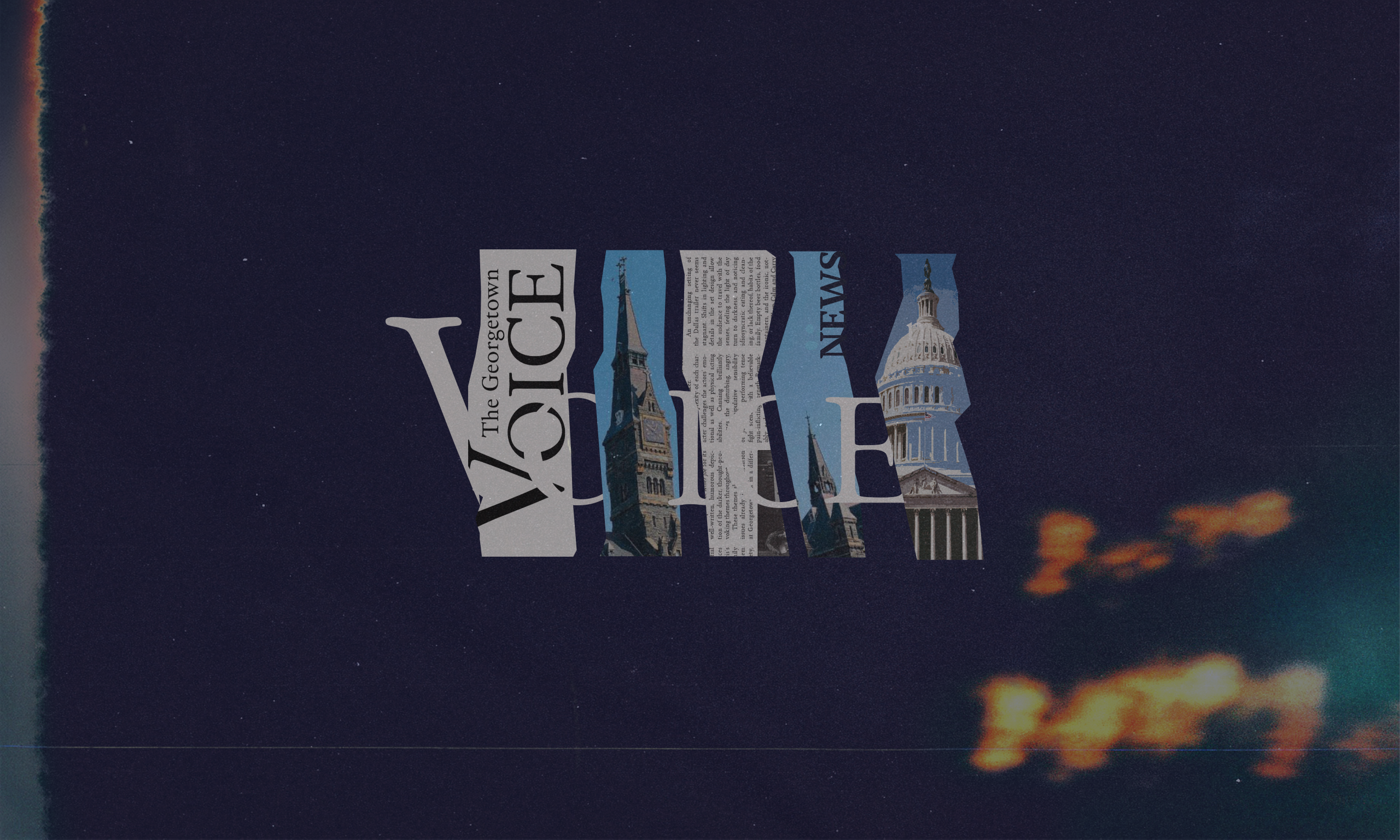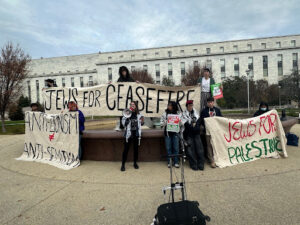After intruders desecrated a Torah at Tau Kappa Epsilon house (TKE) at George Washington University, student and faculty responses there and at Georgetown University signaled strong support for the Jewish communities and demanded meaningful action.
Vandals ripped up the Torah scroll and covered it with detergent, hot sauce was smeared on the walls of the fraternity, and fire alarms were ripped out of walls early in the morning on Sunday, Oct. 31, according to TKE president Chris Osborne.
Approximately one-fourth of TKE is Jewish, and the Torah is just one of several religious texts that the fraternity keeps for swearing in new members; other religious texts remained unharmed. D.C. police are investigating the incident as a hate crime, although perpetrators have yet to be identified.
“It’s awful. It’s disheartening and we have to have shoulders to lean on and be strong together, and be united,” Osborne said.
The incident is the latest in a series of anti-Semitic acts at George Washington University. In late 2019, a student posted a video on social media containing anti-Semitic language and slurs. The same year, a residence hall was vandalized with several swastikas. And this year, incidents include an allegedly anti-Semitic paper topic, the theft and vandalism of a Mezuzot, as well as the harassment of a female student when an image of a swastika was sent to her room on the Mount Vernon campus.
On Monday, just one day after the TKE vandalism, Rabbi Yudi Steiner, the executive director at Rohr Chabad Center at the university, received an email comparing Jewish people to Nazis and called the act of vandalism an “act of resistance against the oppressor.” Steiner shared the email with the police and then took to social media to show he was not deterred. “Please know that every attack on our people will be met with more Mezuzot and more proud Jews,” he wrote.
The same day, hundreds of students marched on the campus in a solidarity rally and read parts of the Torah to the demonstrators in response to the vandalism.
Georgetown has its own history of similar anti-Semitic violence. In 2017, four swastikas were drawn in different campus housing locations, the last occurring on the Jewish new year, Rosh Hashana. The swastikas were also paired with threatening messages towards women. President John DeGioia initially characterized the act as a “bias-related incident” before changing his language to describe it as “an abhorrent act of anti-Semitism” three emails later, leading to widespread student critique.
These crimes are part of a larger rise of anti-Semitism on college campuses. Nearly 80 percent of current Jewish university students and recent graduates have personally experienced some form of anti-Semitism, according to an Alums for Campus Fairness survey.
Responses to the most recent incident were swift. George Washington President Thomas LeBlanc denounced the act Sunday night, calling it an intolerable act of anti-Semitism. The Anti-Defamation League, an organization working to stop defamation against Jews, called for swift action from the police and administrators to catch the perpetrators.
Rabbi Levi Shemtov, who directs Chabad GW, was deeply angered by the vandalism and has visited TKE to talk with students and offer counsel. Just one week prior to the desecration, he had hosted an event on anti-Semitism on campus.
GW Hillel, a branch of the largest Jewish campus organization, was deeply concerned by the incident and opened office hours to talk through the events and students’ feelings the next day.
The Georgetown Jewish community has also responded. GU Jewish Life released a statement in an email to their listserv, reading, “We are deeply saddened by the events at GW this week. We stand in solidarity with the entire Jewish community in D.C.”
GUSA unanimously passed a resolution standing in solidarity with the George Washington Jewish community and called upon the university to adopt the International Holocaust Rememberance Alliance’s working definition of antisemitism. The definition includes “rhetorical and physical manifestations of antisemitism” directed towards Jewish people, their property, and/orJewish community institutions and religious facilities
The organization also offered pastoral care through office hours with Rabbi Rachel. Additionally, other Georgetown campus groups have posted statements of solidarity through social media.
As law officers continue to investigate the vandalism, working towards justice and solidarity is essential. “Number one, do not get intimidated; react cautiously but don’t overreact, and above all, convert the negative energy into positive energy to do something good,” Steiner said.






